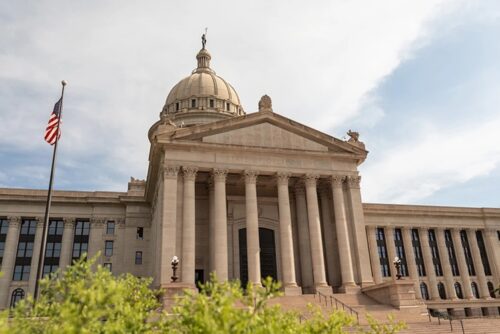
2.27.24 – KOSU – By Lionel Ramos
Thursday, Feb. 29 marks the last day state lawmakers can have their bills heard and passed through committees in their chamber of origin to then be considered on the floor.
Thursday, Feb. 29 marks the last day state lawmakers can have their bills heard and passed through committees in their chamber of origin to then be considered on the floor.
Any bills that don’t get a committee hearing by then essentially fail, unless lawmakers go out of their way to bring them back into the fold.
House Democratic leader Cyndi Munson of Oklahoma City says legislative deadlines help lawmakers prioritize bills and give constituents a better idea of what measures have a real chance of becoming law.
“If you want a bill heard that you care about that you’re wanting, you know, you need to know what committee it’s in,” Munson said. “And you have four weeks, to really advocate for that bill.”
Thursday is the first of five important deadlines that occur during the legislative session. Here are the others:
- March 21: Deadline for third reading of bills in their chamber of origin.
- April 11: Deadline to report bills from committees in their opposing chamber.
- April 25: Deadline for the third reading of bills in their opposing chamber.
- May 24: Sine die adjournment, or simply, the end of the regular session.
After this week, lawmakers will spend the next two on the floor making the case for bills approved in committee. Bills passed on the floor will then move to the opposite chamber for consideration.
The end of the regular session does not mean the end of the special session lawmakers started at Gov. Kevin Stitt’s behest to discuss lowering the state income tax by a quarter of a percent.
The special session could end during or after the regular session, depending on when lawmakers in the Senate move to approve or deny the income tax cuts proposed in late January.
